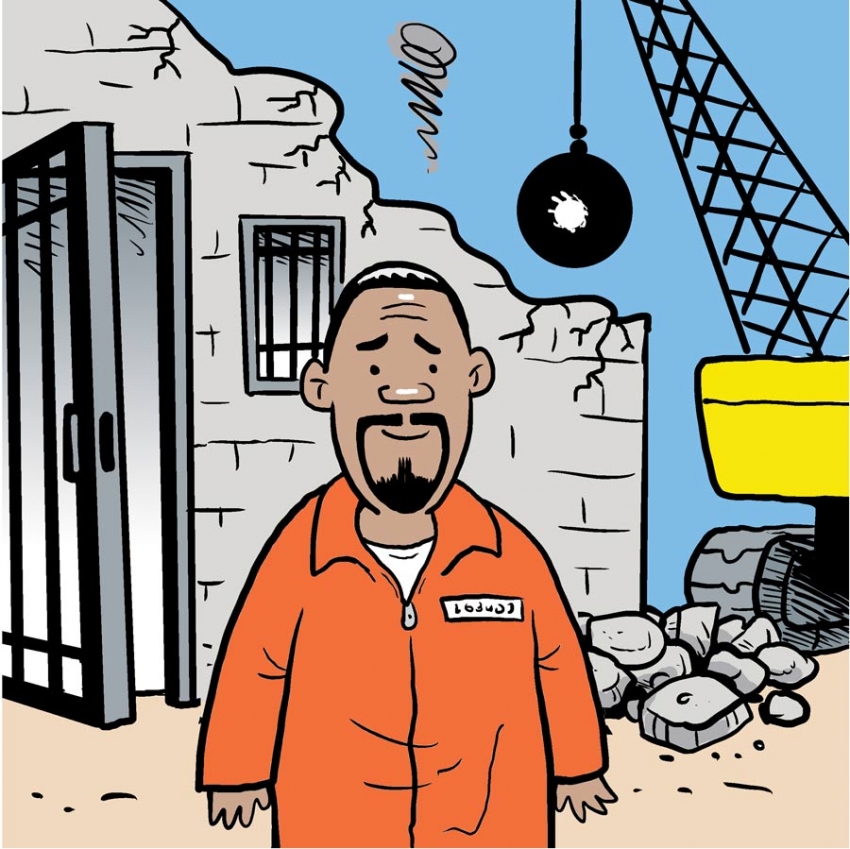
pris•on ab•o•li•tion
noun
1. The dismantling of the prison system; the end of coerced confinement as punishment
2. The construction of alternatives to prison and of a world that disincentivizes violence
“While there is a lower class I am in it, and while there is a criminal element, I am of it, and while there is a soul in prison, I am not free.” —Socialist Eugene V. Debs, in a statement to the court after being convicted of sedition in 1918.
Don't Prisons Keep People Safe?
Whatever politicians might say, abolitionists argue that the current prison-industrial complex isn’t designed to solve crime—after all, three-quarters of people released from prison are rearrested within five years—but rather to warehouse the poor, drug addicted and mentally ill. And there’s a racial element as well: Black Americans are around five times more likely than whites to find themselves behind bars, often for minor offenses, while many who pose a bigger threat to society get Oscars, golden parachutes and seats in Congress.
Why Not Just Make Prisons Better?
It’s true that not all prisons are as sadistic as Uncle Sam’s: In Norway, for example, the incarcerated wear street clothes, pick berries, cook meals and have relative freedom to move about the grounds. But many prison abolitionists believe that depriving humans of liberty is fundamentally cruel. Social scientists such as Gresham M. Sykes—not to mention many incarcerated people themselves—have long documented how the loss of one’s place in society, physical safety and autonomy can cause severe long-term psychological problems.
Still, Isn't Prison Abolition Utopic?
Utopic need not be a slur, but the idea is less out there than it may seem. As Angela Davis explains in Are Prisons Obsolete?, imprisonment only became a catch-all punishment in what’s now the United States around the American Revolution. Other means of conflict resolution aren’t just possible, but the historical norm.
Okay, So … What Do We Do With All The Criminals?
The abolitionist first might challenge the word “criminal,” observing that it’s often racialized, and call to decriminalize “crimes” like drug use, for example. They might also advocate full employment, well-funded public education, drug treatment programs and adequate mental healthcare, all of which help address causes of illegal activity; digging out the social and economic roots of gendered violence would be crucial as well. Prison abolitionist organizations such as Critical Resistance support initiatives like community gardens to build social cohesion. And while instances of rape and murder won’t vanish entirely, societies worldwide are experimenting with restorative justice: non-carceral efforts at repairing harm done to individuals and communities.
A Brief Case for Prison Abolition
Very easy to read article answers alot of the short sighted questions about what to do with rapist and child molesters. Folks act like if we abolish slavery they would be running around causing havoc. Which is what they want you to think and alot of people eat it up because they fail to see other options for punishment due to lack of critical thinking skills.